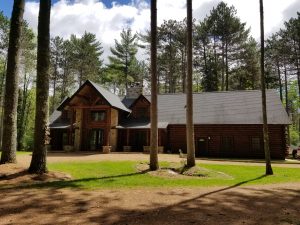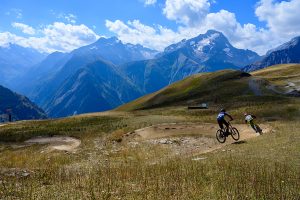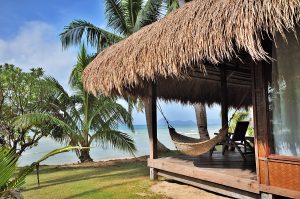Should I buy a vacation rental?
 Since we purchased our vacation rental lodge in Northern Wisconsin last year, I’ve been bombarded with questions from people interested in purchasing a vacation home to use for themselves and to rent out part time. So I thought it was time to write a blog post about it.
Since we purchased our vacation rental lodge in Northern Wisconsin last year, I’ve been bombarded with questions from people interested in purchasing a vacation home to use for themselves and to rent out part time. So I thought it was time to write a blog post about it.
There’s no doubt there has been a huge rise in the vacation rental market. Sites like VRBO and Airbnb, which allow individual owners to make their vacation homes available to a broad audience of renters, have been around for many years now. This market continues to grow in size and popularity. With the onset of COVID-19 last March (2020) vacation rentals were significantly impacted with the cancellation of many vacations. However, as the year went on vacation rentals rebounded quickly as people were seeking to get away from home yet maintain some distance and privacy. Now the vacation rental market has exploded in both rentals and home sales.
If you are buying (and can afford) a 2nd home strictly for your own enjoyment, you could definitely offset some of the expense of ownership by setting it up for short term rental use. I’m less concerned for those who have the financial means to do this without the need to rent it to cover expenses. By all means, do it and enjoy!
For those buyers who are stretching themselves to buy a vacation home with the intent that it’s an investment and will provide positive cashflow, I’d say it’s totally doable, but exercise extreme caution. Here are 6 things to consider when shopping for a vacation rental.
Location
This is key in order to attract renters – there needs to be some draw to the area. Maybe the area is a popular tourist destination. Maybe it’s near a National Park. Maybe it’s a lake front property with access to fishing, boating, swimming, etc. Maybe it’s a peaceful getaway with mountain views, but also within an hour or two of major cities. Maybe it’s on the beach (or a few blocks away). The bottom line is the property needs to be in a location that will attract a large enough population of people to keep your rental busy. Our choice was a 3 hour drive from Madison (not much further to Chicago, Minneapolis or Milwaukee) in the touristy Minocqua area on a lake, near skiing, hiking, snowmobiling, and ATV riding, but yet secluded in the woods. So we had a combination of several of these things.
Competition and Pricing
Look at the number of other vacation rentals in the area. If there are other rentals, that could be a good sign that there is a big draw to the area. However, it could also mean lower rental prices. If there are similar vacation rentals, you’ll have to outprice the competition in order to fill your rental up. We had looked at some areas that had entire neighborhoods or condo buildings setup strictly for vacation rentals. The challenge is the mass quantities of rentals in that area keeps the nightly price of the rental low in comparison to the cost of the house. Spend some time researching what kind of rental rates the comparable homes are getting, and pay special attention to the calendars of the competition. Just because you see a solid rental rate, doesn’t mean that the home is actually renting. I’ve seen quite a few empty rental calendars which tells me a home is priced too high (or it has an off season). You’ll have to carefully analyze this info to make sure that your home can be desirable at the price that you need to make a return on your investment.
Permitting and Zoning
Permitting and zoning are something often overlooked by rookie investors. There are some cities or neighborhood associations that have bans entirely on short term rentals. Oneida County, where our cabin is, used to be an area that only allowed short term rental in areas specifically zoned for it. However, in 2017 the state government voted to remove the local control of short-term rentals. This meant municipalities have less control however, homeowner associations can still restrict it. Additionally, this state guideline only prevents restrictions on rentals of 7 days or more. Many zoning areas still do not allow rentals of less than 7 days, which would also reduce the number of people you could attract.
Now, just because a city (in Wisconsin) can’t prevent you from renting for 7 days or more, doesn’t mean that they can’t regulate it. Where our cabin is located, we were required to get a Tourist Rooming House (TRH) license, a Health Department License, and a Wisconsin Business Tax Registration Certificate to collect sales tax. Other states, municipalities, counties have different licenses and requirements. So do your research before jumping in.
 Character and Uniqueness
Character and Uniqueness
In order to rent well, it is ideal if a vacation rental has something unique about it or some special character. You want it to feel different than your typical home, because renters will want it to feel different or more fun than home. For example, our rental is very log cabin feeling with a giant moose head above a floor to ceiling stone fireplace. There is stone on some of the basement walls to feel more interesting than an average basement. It also has hiking trails and water frontage right on the property. Obviously, this doesn’t fit every property. I’ve seen fairly basic homes near Disney World that are spiced up with Disney décor such as a Star Wars room and a Moana room. Simple things like that take a boring home and make it fun and making your property unique will help fill up your rental calendar.
Expenses
There are quite a few expenses associated with owning a vacation rental. Make sure you factor these in when you are trying to determine if a vacation rental will be profitable.
- Furnishings: You will need to make sure the home is furnished. If you want to attract renters don’t use your left over 15-year-old crap from your house. Use nice furniture that flows with the theme and style of home.
- Utilities: Natural gas or propane, electricity, water, and sewer.
- Cable: Yes, people expect cable tv at any vacation home.
- Internet: This is an absolute must. Most people cannot “survive” without staying connected.
- Cleaning: Having a cleaner that can make sure the home is cleaned between each renter is a necessity.
- Maintenance: Having new people in and out of your property every week will cause more wear and tear than your own personal home.
- Lawncare: You will need somebody to come 2-4 times a month and mow depending on your landscaping.
- Snow removal: After every snowfall or at least before each renter, you’ll need someone to clear snow in the winter months.
- Supplies: Most vacation rentals at least included things like dish soap and toilet paper.
- Toys: You will get more renters if there are things to do. For example, we provide kayaks, paddleboards, a foosball table, games, DVDs, etc.
- Sales tax: In most areas this is considered lodging so you will need to pay sales tax.
- Advertising: VRBO, Airbnb, and your own website all have fees associated with them.
- Property management: You might choose to manage the property yourself, but you may choose to hire a property manager.
Market Cycle
The market for 2nd homes and vacation properties is more cyclical than typical owner-occupied homes. In most cases these homes are a luxury and not a necessity, therefore when the economy takes a downturn or times get tough they might not sell as easy as your typical home. We’ve seen a huge run up in real estate prices in general over the last several years and the vacation home market is hotter than ever. In the last housing downturn, second homes were hit harder than primary residences. While I don’t think we are bound for another 2008 type downturn, I think the popularity of staying in a vacation rental vs hotel will continue to increase. So, I don’t think the next shift in the housing market or economy will be as bad, I’m just saying you should plan and prepare accordingly to be somewhat conservative. In other words, don’t expect that your vacation home value will continue to skyrocket in value and don’t expect that you’ll be able to sell it in a matter of days.
In summary, we have had great success in our short time of owning a vacation rental. It’s a rewarding and fun investment, but it’s not without risks, work, and occasional stress. If you are interested in vacation rentals, go for it; but do your homework first. There’s a lot the goes into it and a lot that could go wrong. Conservatively plan for things to not always go your way, and when things go right, it’s just a huge bonus.


 Back Home
Back Home












Leave a Reply
You must be logged in to post a comment.